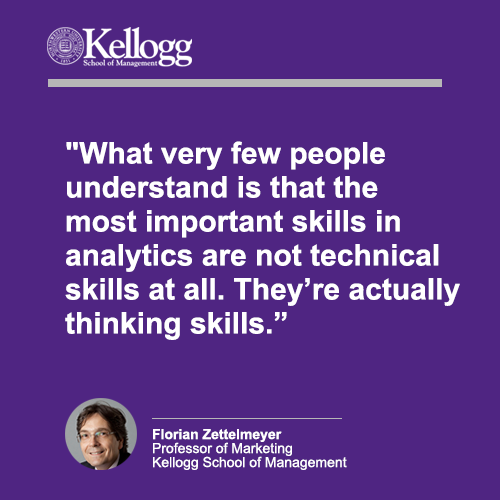A quick note that have been inspired by a tweet of @kelloggschool about the most important skill in data analytics.
I am 100% agree with this statement. Indeed, I believe that what really matters once analyzing data is the ability to understand the origins of the data, and to translate it into simple and operational decisions.
"What very few people understand is that the most important skills in analytics are not technical skills at all. They're actually thinking skills".
I am 100% agree with this statement. Indeed, I believe that what really matters once analyzing data is the ability to understand the origins of the data, and to translate it into simple and operational decisions.
I always take a lot of times to understand the history, the origins of the data: Why did the sale falls? Was the previous data too high, hyped du to extrordinary events? Or because something went wrong in store? A shut down of the web page? Data alone, even if pure, well brought, and the proper one, does not mean much. It is therefore always important to correlate it to actual concrete stuffs.
And then, what is interesting, it is always to make decisions on it. Being able from complex data to bring a clear view of what needs to be undertaken to maintain good figures or to turn around one situation.
I am currently reading the book of former TESCO's CEO Terry Leahy in his book "Management in 10 Words". One of them is "simplicity". During this chapter, he emphasizes on the difficulty of making simple decisions to solve complex problems. Nowadays, with the Big Data, the information overload, most of things seems to be complexed, and most of the time, we tend to look for complex solutions to these complex problems. One of the key factore of success of management is to simplify decisions, in order to have them well applied by the staff.
Same things with analytics, it is not because you have complex analytics that you should have complex reports, and complex actions linked to them.


